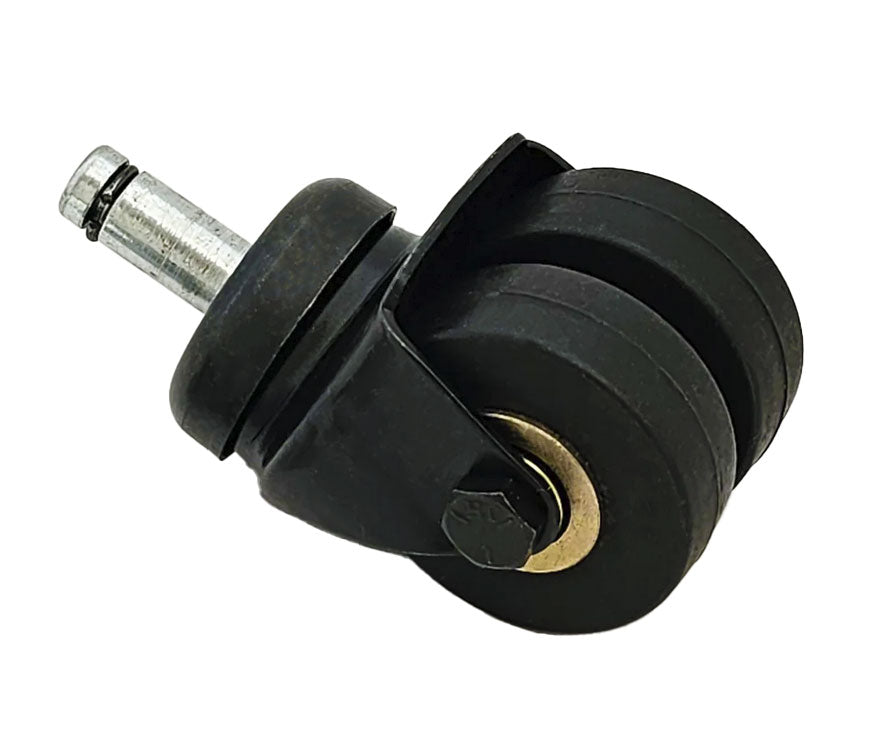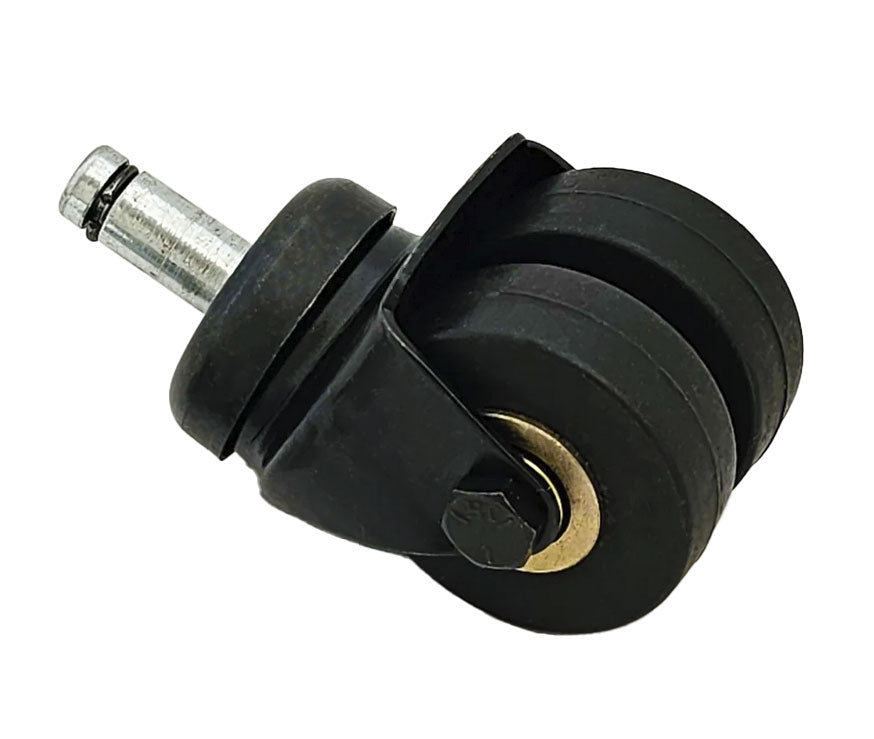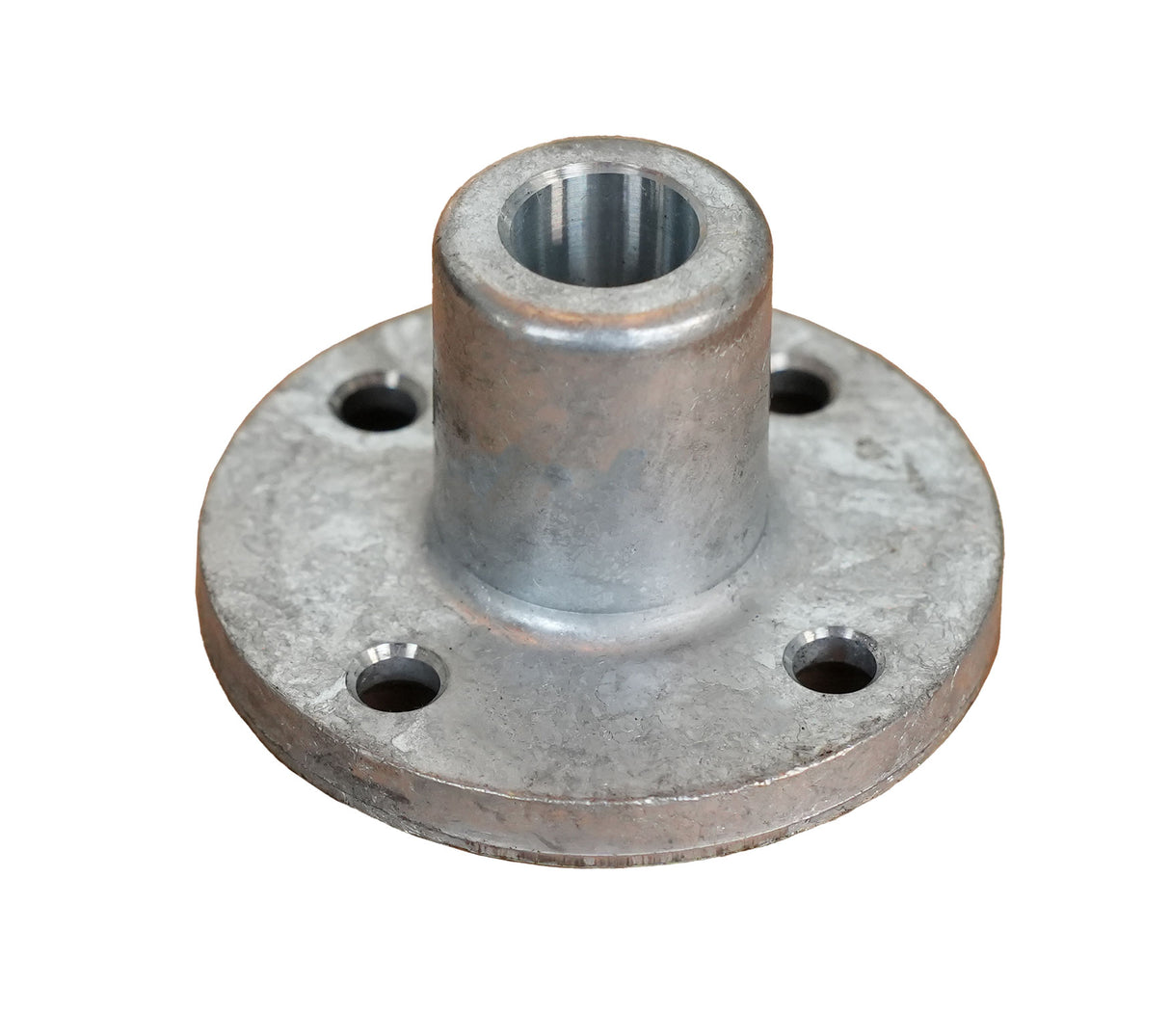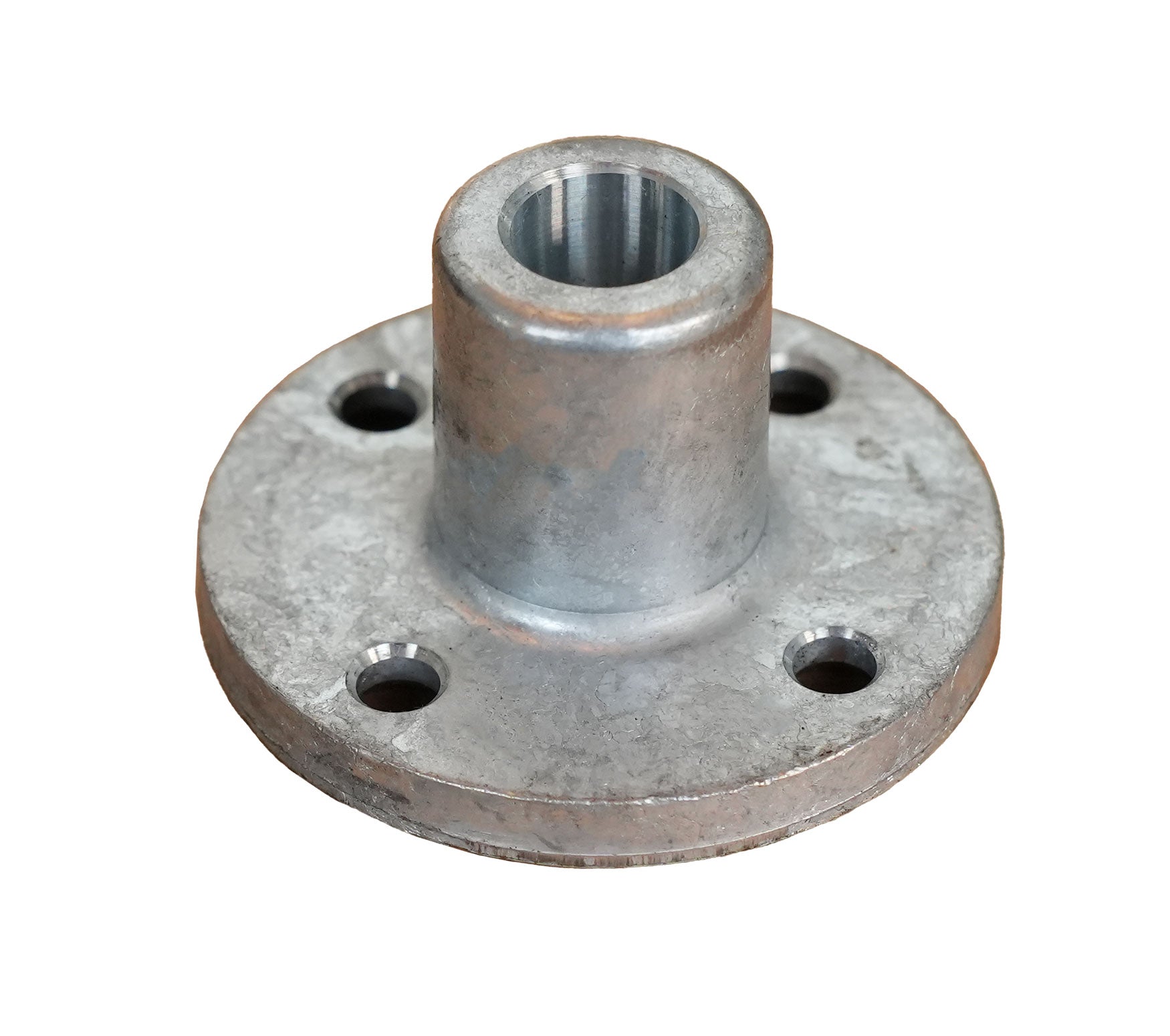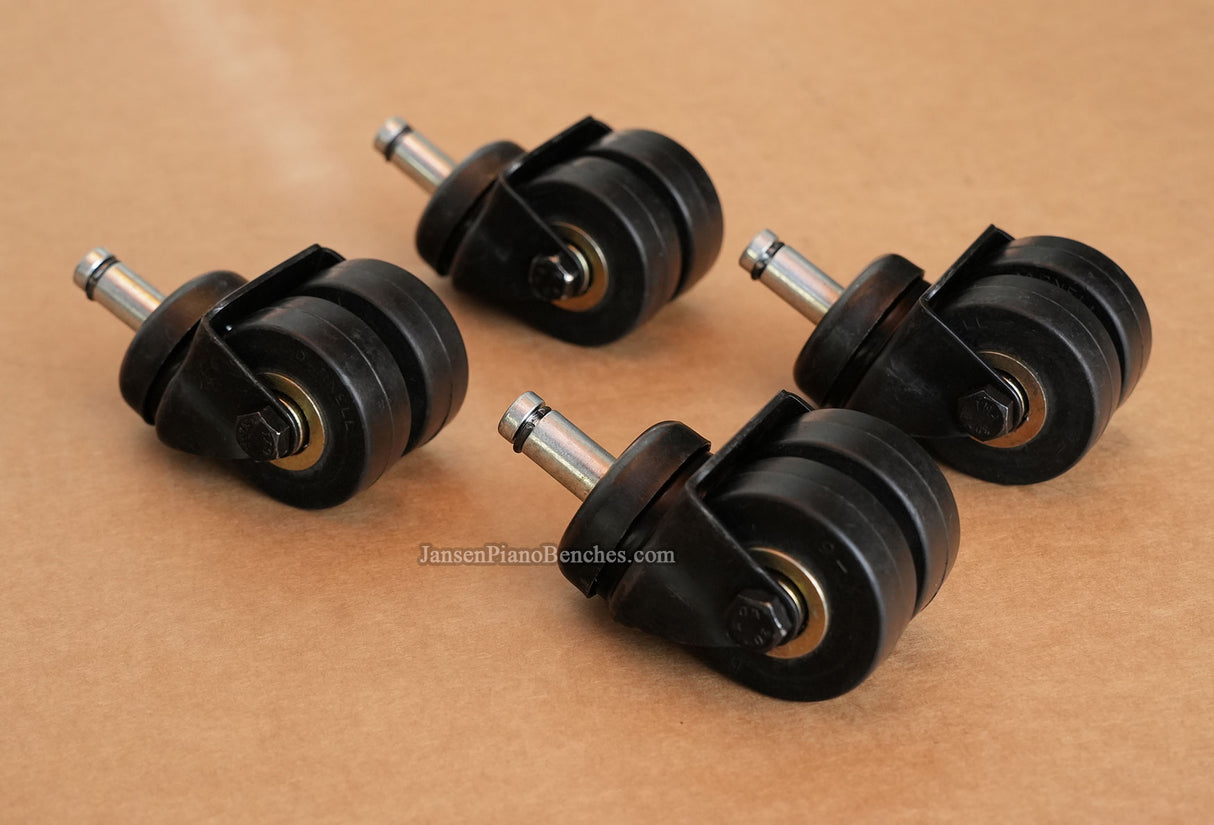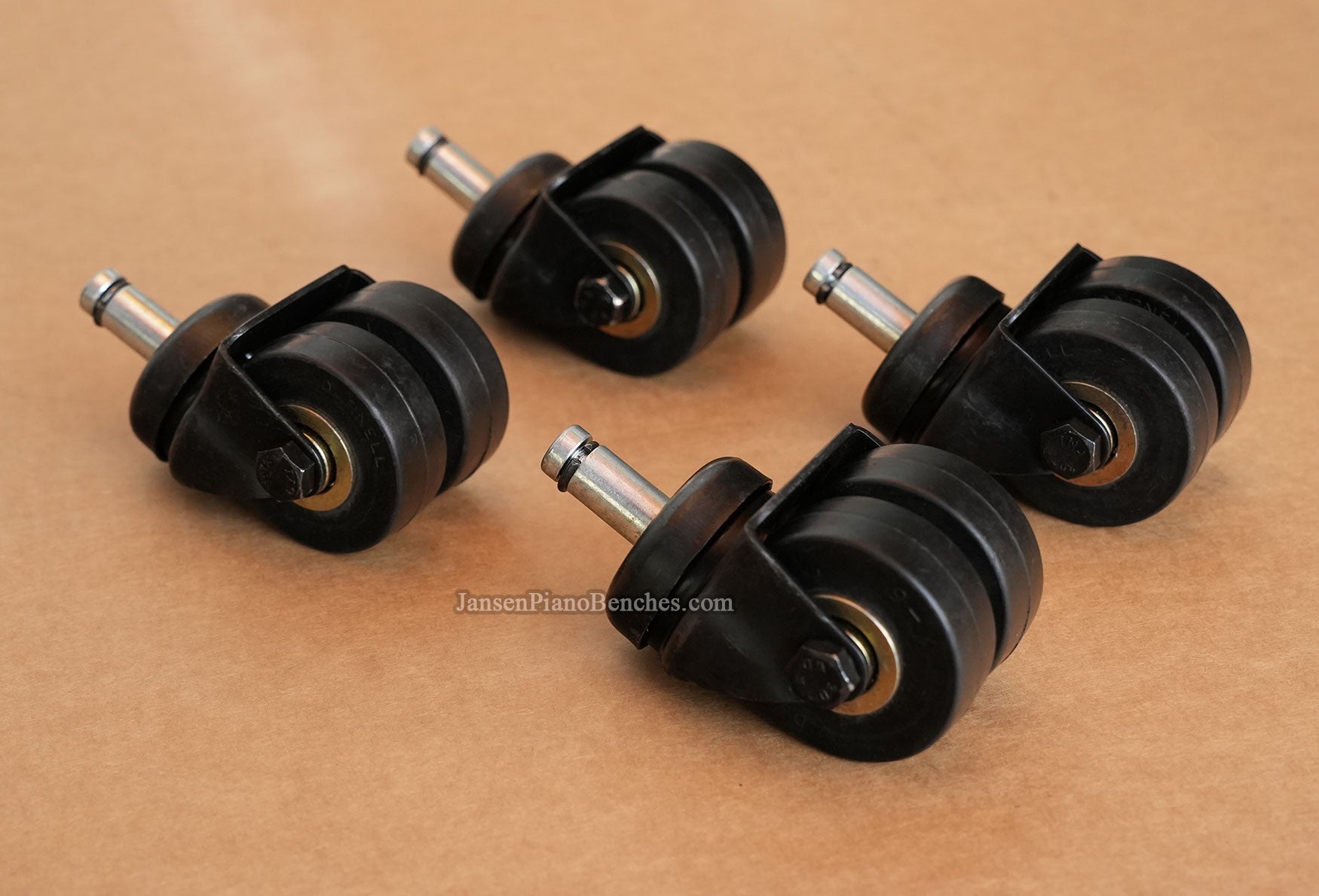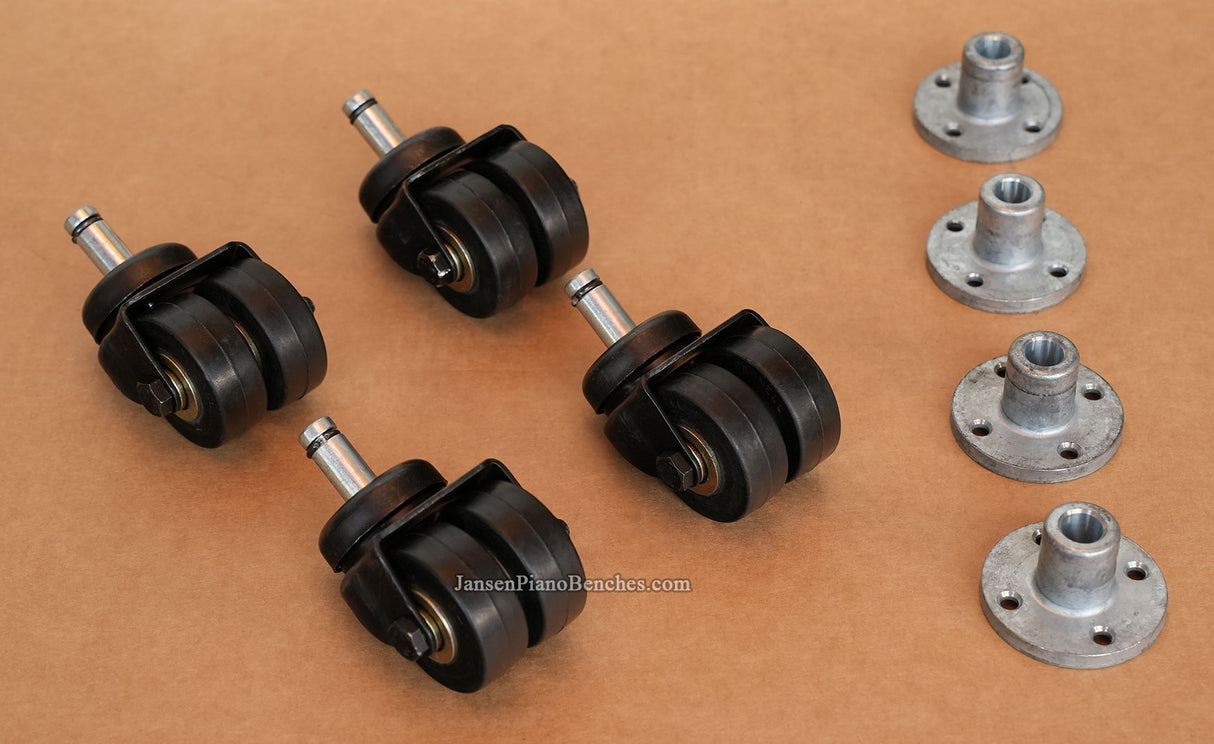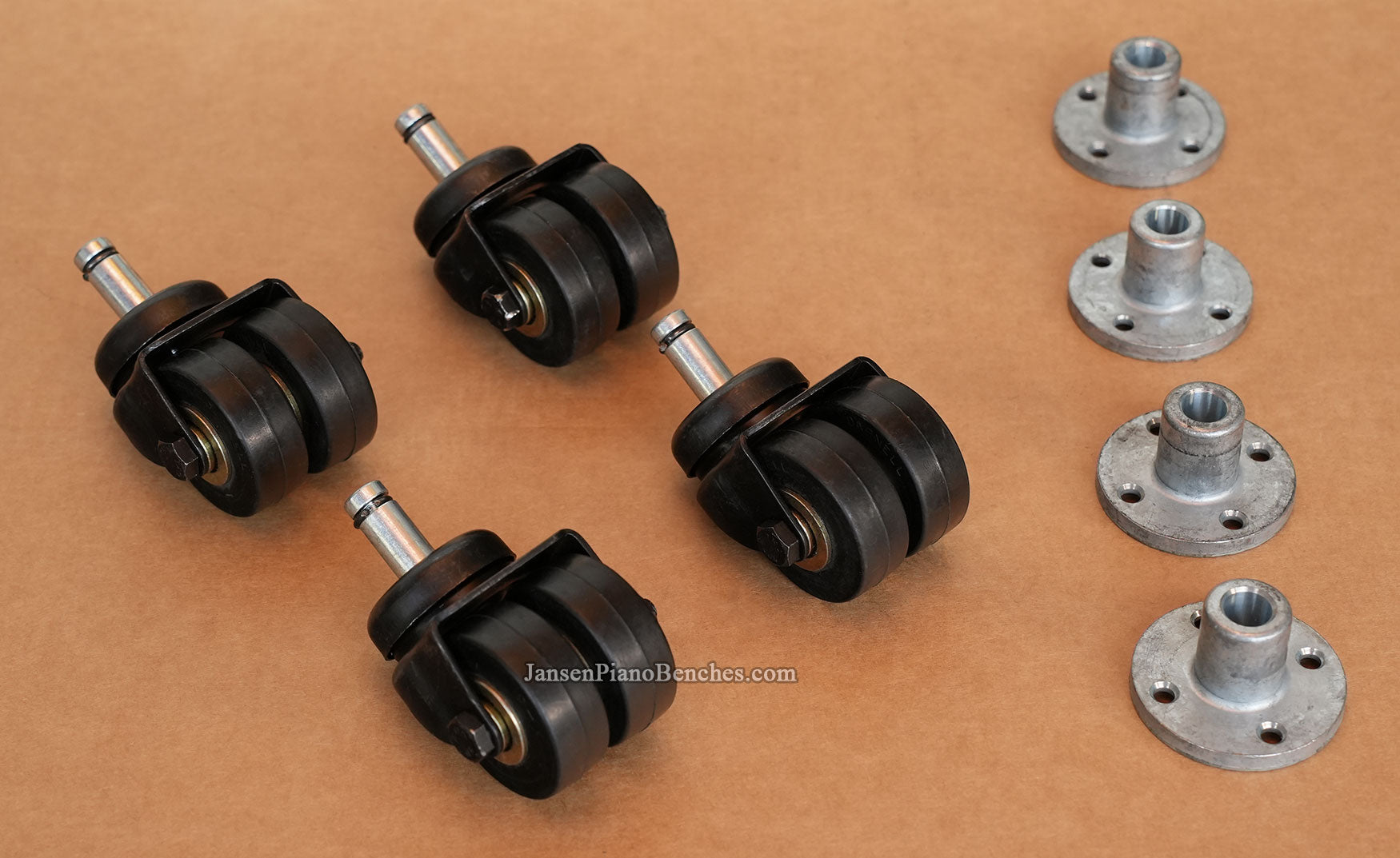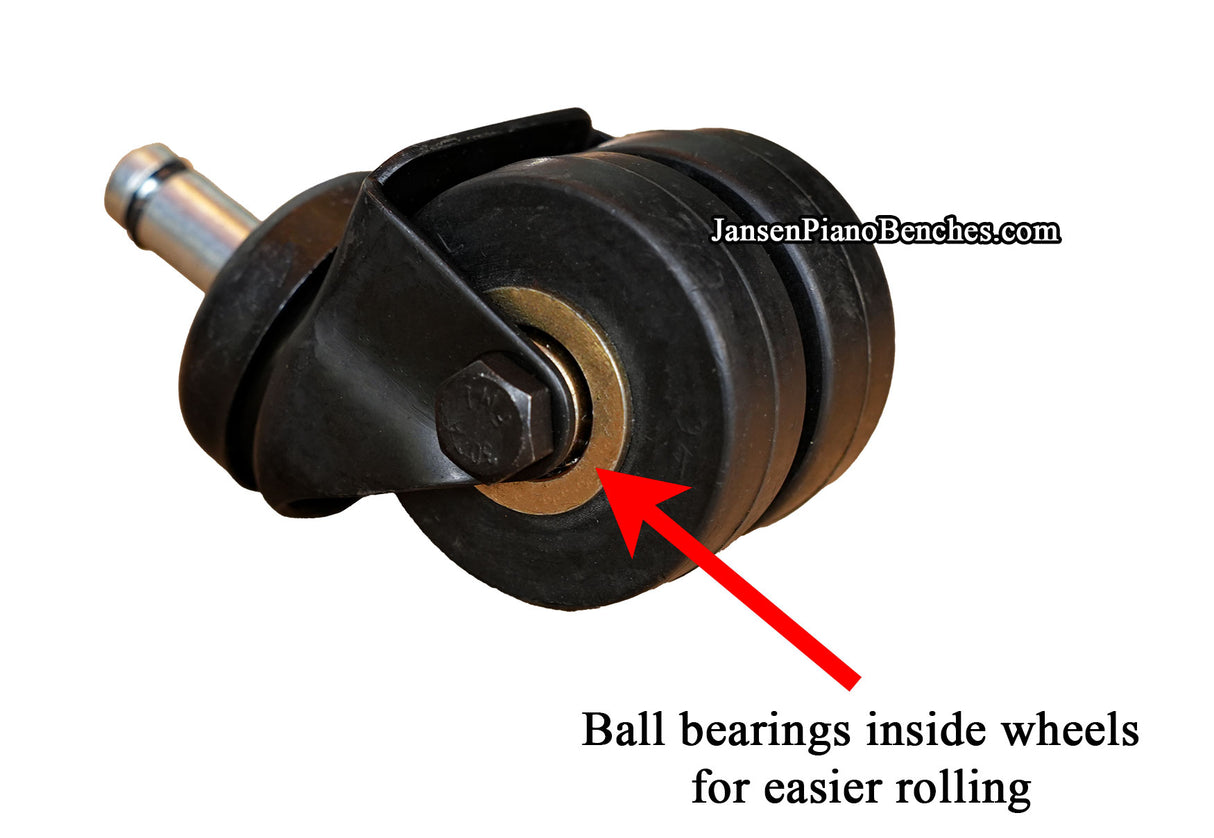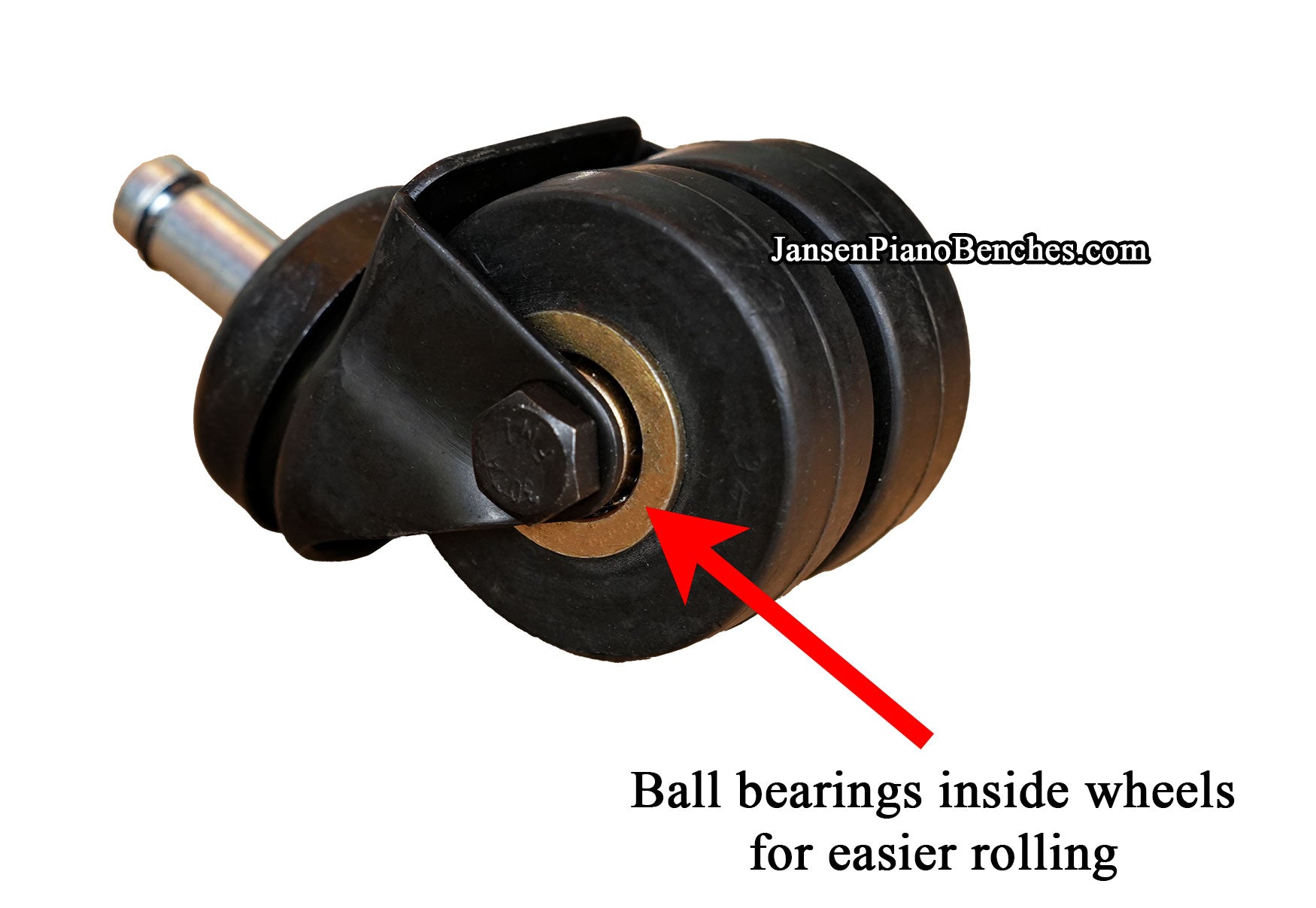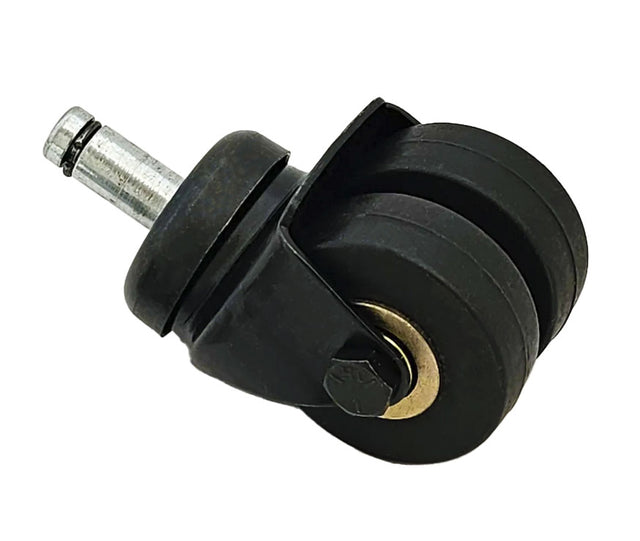Darnell Dual Wheel Upright Piano Casters With Ball Bearings In Wheels
Darnell Dual Wheel Upright Piano Casters With Ball Bearings In Wheels - Set of 4 Upright Piano Wheels - Standard High Capacity Neoprene Material is backordered and will ship as soon as it is back in stock.
These top-of-the-line Darnell dual rubber piano wheel casters are equipped with four sided double ball raceways, that feature ball bearings in the wheels for easier rolling. For heavier upright pianos, these are the best option on the market (both in supporting the most weight, and in ease of transport).
The piano wheel diameter is 2", with a wheel width of 3/4". Casters come with removable cast-iron sockets with 4 screw holes.
Cast-Iron Socket Measurements:
Outer Diameter of Stem: 15/16"
Inner-Diameter of Stem: 1/2"
Height; 1-5/16"
Screw Space: 1-3/16" (Shortest) 1-11/16" (Farthest)
Track Plate Thickness: 1/4"
Sold in a set of 4 piano casters.
Rubber Material Options:
The rubber wheels on these casters are available in two different rubber options.
1). The standard wheels are made of a "High Capacity Neoprene" material. Each individual wheel has a load capacity of 200 lbs (therefore four wheels will support a 800 lbs piano).
2). For the heaviest uprights, these casters are available in a "Hard Rubber" material, with each wheel supporting 230 lbs (920 lbs total for the four wheels combined). This is the most weight supported by any of the rubber wheel piano caster options.
Free Shipping:
-
Piano Wheel Type
-
Wheel Diameter
-
Load Capacity
-
Instrument CompatibilityUpright Piano
-
Country of Origin
-
Color
Frequently Asked Questions
What are the strongest rubber piano wheels available for upright pianos
What are the strongest rubber piano wheels available for upright pianos
Why are ball bearings inside piano wheels important?
Why are ball bearings inside piano wheels important?
What type of piano wheels are best for hardwood floors?
What type of piano wheels are best for hardwood floors?
Rubber piano wheels are ideal for hardwood floors. They provide smooth movement and minimize the risk of scratches or dents. With larger, heavier pianos, brass wheels, while durable, can damage some wood floors unless used with protective caster cups.
How are these piano casters different from standard dual-wheel designs?
How are these piano casters different from standard dual-wheel designs?
Will these piano casters fit my piano?
Will these piano casters fit my piano?
Every piano is a little different, and unfortunately, there's no universal database that matches caster sizes to specific piano models. However, we provide detailed specifications for each product — including stem diameter, stem length, and wheel size — so you can measure your piano’s existing mounting holes and compare.
If your piano’s leg socket is slightly smaller than the stem, you may need to carefully widen the hole to fit. In most cases, installation is straightforward.
Are rubber piano wheels better than brass or metal casters?
Are rubber piano wheels better than brass or metal casters?
How to choose the right piano casters
How to choose the right piano casters
Choosing the right piano casters depends on your piano type, flooring, and how often you move the instrument. Here are five key factors to consider:
- Piano Type – Upright pianos use 4 casters, while grand pianos use 3.
- Floor Type – Rubber casters are best for hardwood and tile. Brass wheels should be paired with caster cups to prevent floor damage.
- Weight Capacity – Match the wheels to your piano’s weight. Most range from 120 to 300 lbs per wheel.
- Mobility Needs – If you move your piano often or over longer distances, double rubber wheels with ball-bearings provide smoother, safer transport.
- Usage Frequency – For schools, churches, or stage pianos that get repositioned often, choose heavy-duty rubber wheels designed for frequent movement.
Should I get rubber or brass piano casters?
Should I get rubber or brass piano casters?
It depends on your floor type and how often you move your piano. Rubber casters are the better choice for hardwood, tile, or laminate flooring — they offer smoother, easier movement while protecting against scratches and dents. Brass casters are more traditional and visually elegant, and are the ultimate aesthetic accessory for a piano.
For most homes, churches and schools, rubber wheels are the safer, more floor-friendly option. If you want the classic brass look, consider pairing them with caster cups to protect your floor.
Can piano wheels be used on carpet or tile?
Can piano wheels be used on carpet or tile?
Yes, both rubber and brass piano wheels work on carpet or tile. Rubber wheels offer smoother movement and better grip on tile, while brass wheels roll well on carpet but may leave indentations without proper weight distribution

